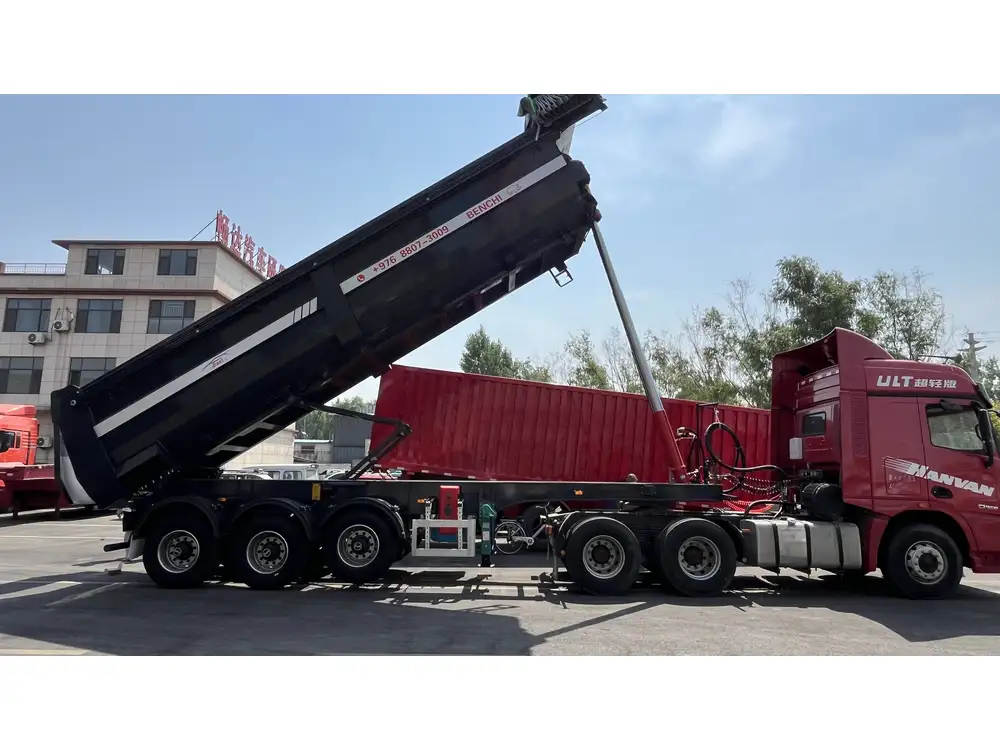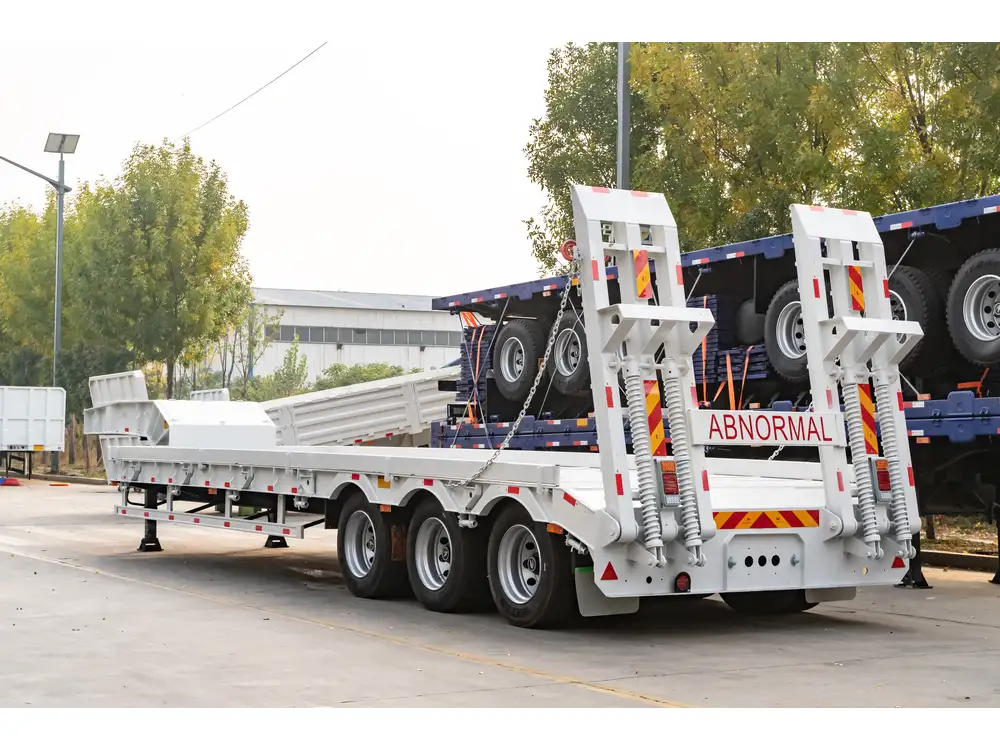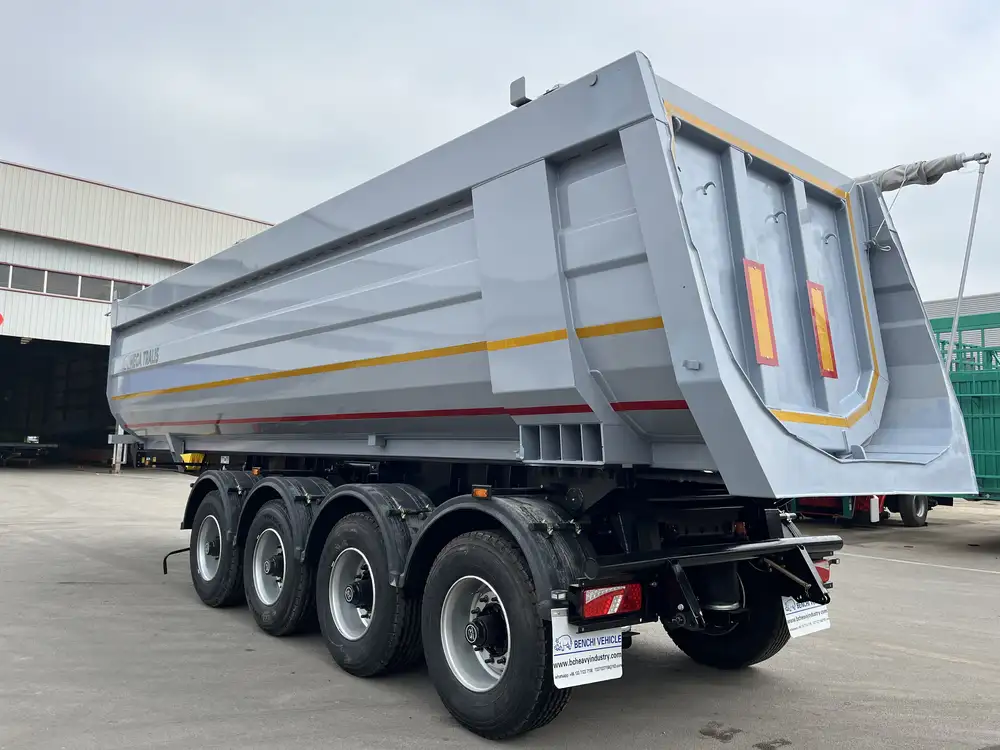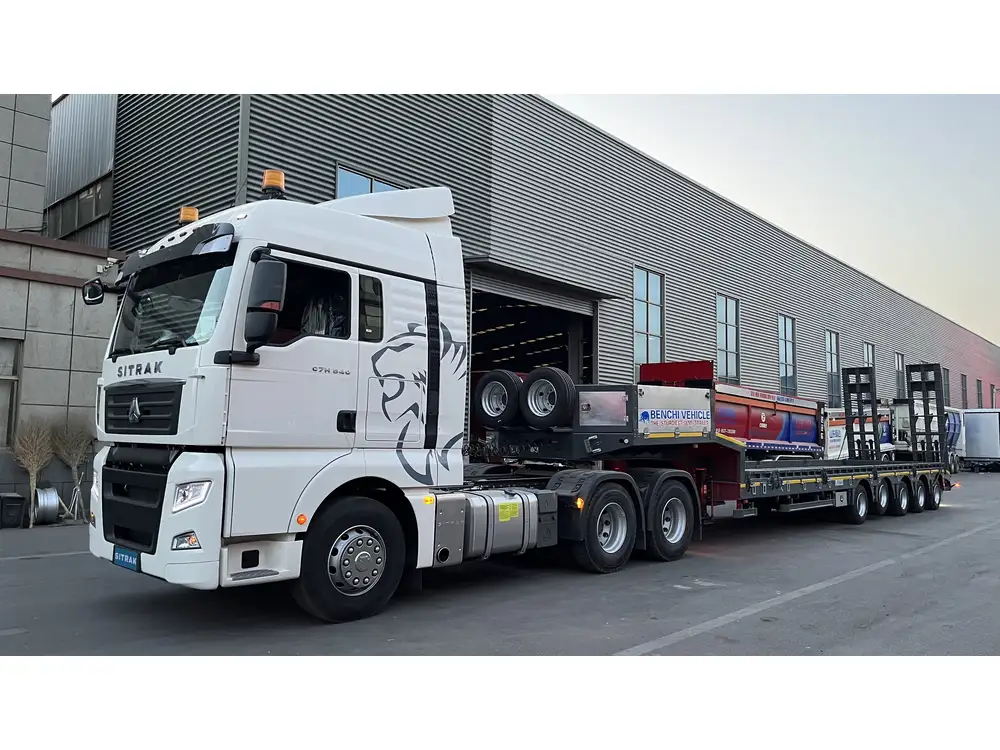Dump trailers have emerged as a vital tool for various industries, playing a pivotal role in construction, landscaping, and waste management, among others. Understanding the multifaceted uses of dump trailers not only enhances operational efficiency but also provides a strategic advantage in project management. Here, we examine the diverse applications, benefits, and considerations linked to these powerful hauling solutions.
Table of Contents
- Introduction to Dump Trailers
- Common Uses of Dump Trailers
- Types of Dump Trailers
- Benefits of Using Dump Trailers
- Considerations When Choosing a Dump Trailer
- Maintenance Tips for Dump Trailers
- Conclusion
Introduction to Dump Trailers
Dump trailers are specialized trailers designed to transport and unload materials. Unlike conventional flatbed trailers, dump trailers are equipped with hydraulic systems that allow for the bed of the trailer to be raised at an angle, facilitating the easy unloading of heavy or loose materials. They are constructed from durable materials capable of handling substantial weight, making them indispensable for industries that require efficient transport and disposal solutions.

Common Uses of Dump Trailers
Construction Projects
In the realm of construction, dump trailers are invaluable for transporting a myriad of materials. From gravel and sand to concrete and bricks, these trailers streamline the logistics of getting supplies to a job site. They enable quick unloading, reducing downtime for construction crews.
- Key Applications:
- Transporting aggregate materials like gravel and dirt to foundations.
- Disposing of debris from demolition sites.
- Relocating equipment and machinery that may require immediate transport.
Landscaping Applications
For landscapers, dump trailers are a versatile asset. They allow for the efficient transport of soil, mulch, and various plants.
- Key Applications:
- Moving large quantities of topsoil for garden beds.
- Delivering mulch to residential and commercial properties.
- Hauling away excavation spoils and debris from landscaping projects.

Agricultural Tasks
In agriculture, dump trailers offer considerable utility. Farmers utilize them for transporting feed, fertilizers, and other farm supplies.
- Key Applications:
- Carting hay and straw during harvesting seasons.
- Disposing of agricultural waste, such as spoiled crops or debris.
- Carrying compost or soil amendments to enhance soil quality.
Waste Management
Dump trailers play a critical role in waste management services. Their dump feature makes them ideal for collecting and disposing of trash and recyclables.
- Key Applications:
- Providing construction cleanup services by collecting debris.
- Facilitating municipal and commercial waste disposal.
- Offering residential cleanup options during renovations or moving.
Other Commercial Uses
Beyond construction and landscaping, dump trailers serve various commercial purposes. They can be essential for hauling goods in sectors like mining or utilities.
- Key Applications:
- Transporting asphalt or concrete in road construction.
- Providing materials for utility roadside work.
- Assisting in seasonal activities, such as snow removal efforts in winter.

Types of Dump Trailers
Dump trailers vary in functionality and design. Understanding these differences can aid businesses in selecting the appropriate model for their needs.
| Type | Description | Ideal For |
|---|---|---|
| Single Axle Dump Trailer | Suitable for lighter loads and shorter hauls. | Small landscaping jobs, home use. |
| Tandem Axle Dump Trailer | Greater weight capacity due to dual axles, ideal for heavy-duty applications. | Heavy construction sites, agricultural use. |
| Low Boy Dump Trailer | Features a lower deck for transporting taller loads securely. | Heavy machinery, larger equipment transport. |
| Enclosed Dump Trailer | Provides protection against weather and theft, perfect for transporting sensitive materials. | Contractor tools, valuable landscaping materials. |
Benefits of Using Dump Trailers
Adopting dump trailers in operations presents numerous advantages:
Efficiency in Material Handling: The hydraulic dumping mechanism significantly decreases labor time and effort when unloading materials.
Versatility: They can handle a wide range of materials, from heavy aggregates to lighter landscaping supplies.
Cost-Effectiveness: By reducing downtime and enhancing productivity, dump trailers often lead to overall cost savings in project execution.
Enhanced Safety: The ability to unload materials quickly and away from the operator promotes safer working conditions.
Durability: Built with robust materials, these trailers are designed for heavy-duty tasks and can withstand rigorous usage.
Considerations When Choosing a Dump Trailer
Choosing the right dump trailer involves careful evaluation of several factors to ensure it aligns with operational needs.

Load Capacity
Understanding the required load capacity is paramount. Consider both the weight and volume of materials typically transported to select a suitable trailer.
Size and Dimensions
The physical dimensions of the trailer must accommodate intended loads while still fitting into standard loading and unloading spaces.
Hydraulic System Specifications
The efficiency of the hydraulic system directly impacts unloading speed and ease. Evaluate the operational pressure and lifting capabilities.

Build Quality and Materials
High-quality materials and construction are essential for longevity and performance, especially under heavy usage conditions.
Price and Budget
Factor in not only the initial purchase price but also ongoing maintenance and operation costs when making a decision.
Maintenance Tips for Dump Trailers
To prolong the life of dump trailers and ensure their proper functioning, regular maintenance is critical.
Routine Inspection: Conduct regular checks on the hydraulic system, brakes, lights, and tires to ensure everything operates safely and efficiently.
Cleaning: After each use, clean the trailer to remove dirt, debris, and any corrosive materials that could lead to deterioration.
Lubrication: Apply lubricant to moving parts and the hydraulic mechanism as recommended by the manufacturer.
Tire Care: Regularly check tire pressure and tread wear to improve fuel efficiency and enhance safety.
Professional Servicing: Schedule periodic inspections with professionals to address any underlying issues before they escalate.

Conclusion
Dump trailers serve as an indispensable asset across various industries, providing effective solutions for transporting and unloading materials. With versatile applications ranging from construction to agriculture, understanding their uses, types, and maintenance is essential for maximizing operational efficiency. As the demand for efficient and effective hauling solutions continues to rise, investing in a quality dump trailer can be a strategic decision that enhances productivity and profitability in any business.
By thoroughly analyzing operational needs and selecting the appropriate trailer, businesses can ensure they are equipped to tackle the challenges of material handling with ease. As you venture into this pivotal investment, the versatility, efficiency, and multiple uses will propel your operations to new heights, ultimately leading to increased success in your projects.



